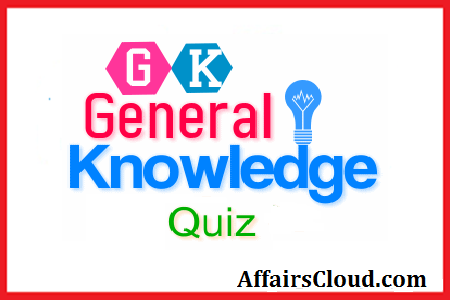Hello Aspirants. Welcome to Online General Knowledge section in Affairs cloud, which is important for all the competitive exams. We have created Some questions related to India Gk(Indian History-Timeline) !!!
- First Round Table Conference was held in …………..
1.1930
2.1931
3.1932
4.1929
5.None of theseAnswer – 1.1930
Explanation :
The Round Table Conference was opened officially by Lord Irwin on November 12, 1930 at London and chaired by the British Prime Minister, Ramsay MacDonald. - First non-cooperation movement Kheda Satyagraha was held in ……………
1.1916
2.1920
3.1918
4.1023
5.None of theseAnswer – 3.1918
Explanation :
The first non-Cooperation movement Kheda Satyagraha movement inspired by Mahatma Gandhi and occurred in Kheda district of Gujarat on 1918 . - Ramakrishna mission was established by ………………..
1.Nehruji
2.Swami Vivekanand
3.Ganhiji
4.Swami Dayanand Saraswati
5.None of theseAnswer – 2.Swami Vivekanand
Explanation :
The mission is a philanthropic, volunteer organisation founded by Ramakrishna’s chief disciple Swami Vivekananda on 1 May 1897 - Who appointed a Police Commission in 1902 under Andrew Frazer ?
1.Lord Lytton
2.Lord Minto-II
3.Lord Chelmsford
4.Lord Curzon
5.None of theseAnswer – 4.Lord Curzon
Explanation :
In 1902-03, a Police Commission was established for the Police reforms under Sir Andrew Frazer and Lord Curzon got much success in the Police intelligence. - …………………………. Was regarded as the ‘Father of Modern Western Education in India’
1.Sir Charles Metcalfe
2.Lord Auckland
3.Lord William Bentinck
4.Lord Hardinge
5.None of theseAnswer – 3.Lord William Bentinck
Explanation :
Lord William Bentinck who was not only a social reformer but also known as “Maker of Modern India” or “Father of Modern India” - Second round table conference was held in ……………..
1.1934
2.1930
3.1931
4.1935
5.None of theseAnswer – 3.1931
Explanation :
The second Round Table Conference was held in London from 7 September 1931 to 1 December 1931 with the participation of Gandhi - Who among the following coined the term ‘ Pakisan’ ?
1.Chaudhary Rehmat Ali
2.Sikandar Hayat Khan
3.Fazlul Haq
4.Khaliquuzzaman
5.None of theseAnswer – 1.Chaudhary Rehmat Ali
Explanation :
Chaudhry Rehmat Ali was a Pakistani .He is credited with creating the name “Pakistan” for a separate Muslim homeland in South Asia and is generally known as the founder of the movement for its creation. He is best known as the author of a famous 1933 pamphlet titled “Now or Never; Are We to Live or Perish Forever”, also known as the Pakistan Declaration. - The idea of Indian National Army(INA) was first conceived in Malaya by who ?
1.Jinnah
2.Mohan Singh
3.Lord Wavell
4.Ras Bihari Bose
5.None of theseAnswer – 2.Mohan Singh
Explanation :
The Indian National Army was an armed force formed by Indian nationalists in 1942 in Southeast Asia during World War II. The idea of Indian National Army(INA) was first conceived in Malaya by Mohan Singh - The year 1942 is related to …………………….
1.Fourth Round Table Conference
2.August Offer
3.Quit India Movement
4.Government of India Act
5.None of theseAnswer – 3.Quit India Movement
Explanation :
The Quit India Movement or the India August Movement (August Kranti), was a civil disobedience movement launched by Mohandas Karamchand Gandhi (Mahatma Gandhi) on 8 August 1942, during World War II, demanding an end to British Rule of India - Third Round Table conference was held in ……………..
1.1934
2.1933
3.1931
4.1932
5.None of theseAnswer – 4.1932
Explanation :
The third and last session assembled on November 17, 1932. Only forty-six delegates attended since most of the main political figures of India were not present. The Labour Party from Britain and the Indian National Congress refused to attend
AffairsCloud Recommends Oliveboard Mock Test
AffairsCloud Ebook - Support Us to Grow
Govt Jobs by Category
Bank Jobs Notification



